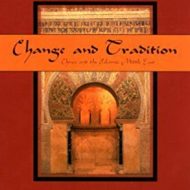In chapter three of No god but God, we found out why the people of Yathrib sent Muhammad the invitation in the first place. Interestingly enough, it wasn’t necessarily because of Muhammad’s revelations or teachings of the one true God, but for his skills as a mediator. He was known in his time for working as a mediator through his work with his wife before he began his work as a prophet. I was also surprised that the name of Yathrib changed to Medina because of Muhammad being there because Medina al-Munawwara/Medina al-Nabi means ‘city of the prophet’. As we can see, Muhammad made a significant impact on a large group of diverse peoples. Also, the book brought up how after Muhammad died and Umar was in control, the treatment of women digressed back to the way things had been before the enlightening Islamic teachings and this is why the idea of oppressed women seems to be connected with Islam. His people had issues with how to deal with new problems that arose without his guidance and straight connection to God as well. It was interesting to read how one person being alive and involved in the community can impact the ways of life so significantly, and when they pass on the community struggles. Granted the one person in this case was Muhammad. The book also talked about some of the wars that occurred during and around the time that Muhammad was alive. While the wars were not necessarily only about religion, religion seems to play a big part in them. This has always been a weird dynamic to me as well when thinking of all the major monotheisms in the world. While their teachings are seemingly so pure of heart, they all had their share in gruesome wars and hostility.
GHS208-05 Fall 2019 China and the Islamic Middle East
Global and Historical Studies at Butler University
